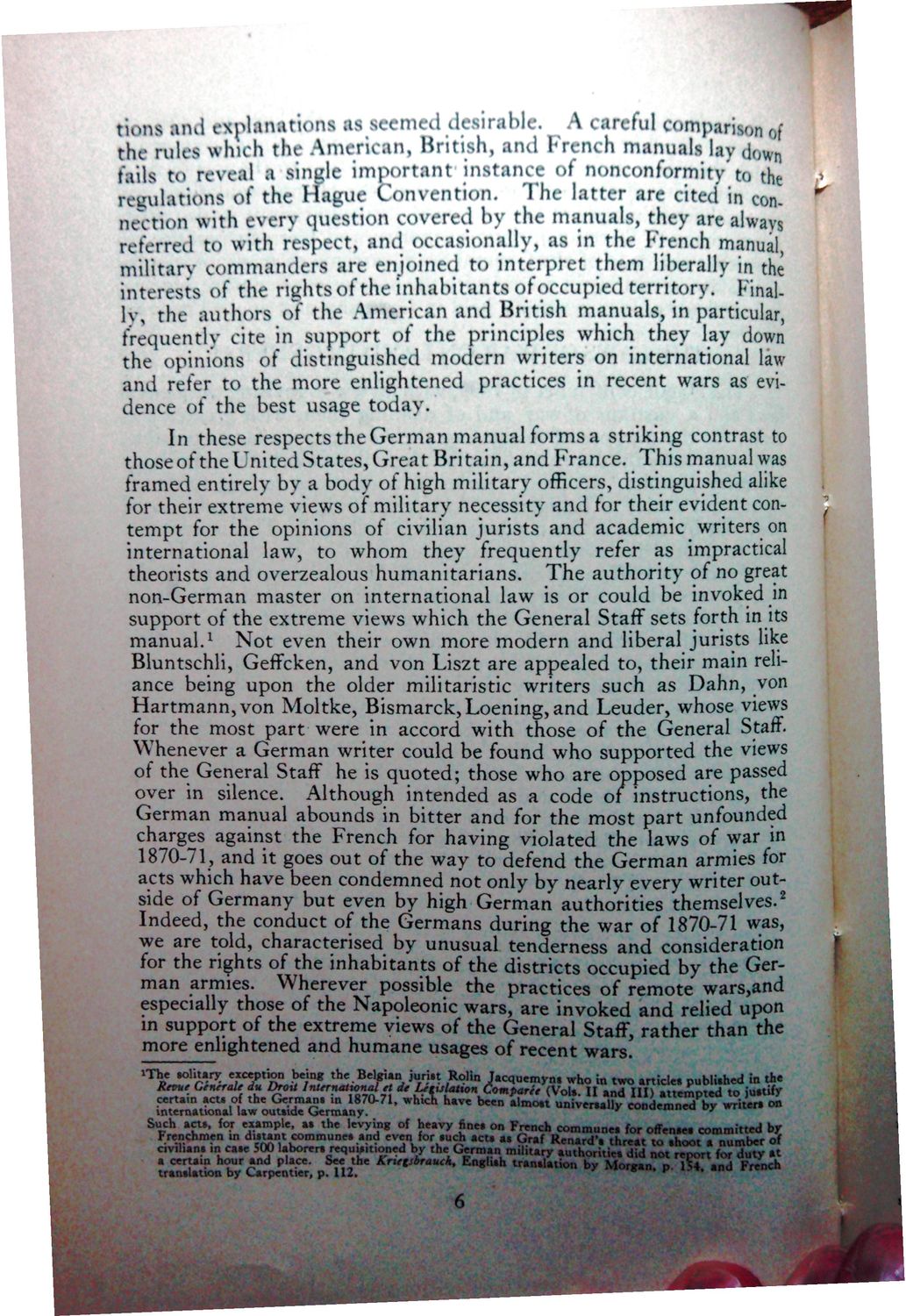| |
| |
Caption: War Publications - WWI Compilation 1923 - Article 14
This is a reduced-resolution page image for fast online browsing.

EXTRACTED TEXT FROM PAGE:
turns and explanations as seemed desirable. A careful comparison of the rules which the American, British, and French manuals lay ( j 0 W n fails to reveal a single important insta/u of nonconformity'to the regulations of the Hague Convention, T h e latter arc cited in conncction with every question covered by the manuals, they are alway s referred to with respect, and occasionally, as in the French manual, military commanders are enjoined to interpret them liberally in the interests of the rights of the inhabitants of occupied territory. Finally, the authors of the American and British manuals, in particular, frequently cite in support of the principles which they lay down the opinions of distinguished modern writers on international law and refer to the more enlightened practices in recent wars as evidence of the best usage today." In these respects the German manual forms a striking contrast to those of the United States, Great Britain, and France. This manual was framed entirely by a body of high military officers, distinguished alike for their extreme views of military necessity and for their evident contempt for the opinions of civilian jurists and academic writers on international law, to whom they frequently refer as impractical theorists and overzealous humanitarians. T h e authority of no great non-German master on international law is or could be invoked in support of the extreme views which the General Staff sets forth in its 1 manual. Not even their own more modern and liberal jurists like Bluntschli, Geffcken, and von Liszt are appealed to, their main reliance being upon the older militaristic writers such as Dahn, von Hartmann,von Moltke, Bismarck, Loening, and Leuder, whose views for the most part were in accord with those of the General Staff. Whenever a German writer could be found who supported the views of the General Staff he is quoted; those who are opposed are passed over in silence. Although intended as a code of instructions, the German manual abounds in bitter and for the most part unfounded charges against the French for having violated the laws of war in 1870-71, and it goes out of the way to defend the German armies for acts which have been condemned not only by nearly every writer out2 side of Germany but even by high German authorities themselves Indeed, the conduct of the Germans during the war of 1870-71 was, we are told, characterised by unusual tenderness and consideration for the rights of the inhabitants of the districts occupied by the German armies. Wherever possible the practices of remote wars,and especially those of the Napoleonic wars, are invoked and relied upon in support of the extreme views of the General Staff, rather than the more enlightened and humane usaees nf wepnt urot-o U ^ t ^ k e r ^ S f c G e ^ ' y . " "' "* " * ' ° " • * • • • * condemned by writer. <* Such acu, for ««mple, a. the levying of heavy fine, on French commune, for offrn.e. committed by Frenchmen m d u u n t commune, and even for.uch act. a. Graf Rcnard'. threat to .hoot a number of civilian* in c u e 500 laborer, requisitioned by the German military authorities did not report for duty at Eng, h £ £ L 3 o » h * & U ! & ; P T U ? Kr"tlbraUch" • " * * * • * Morgan, p. lU. and French 6 W Cn Ve D n m
| |